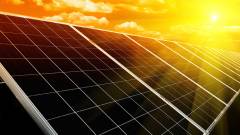We are encouraged by the cabinet’s approval for the 200 MWp solar power plant planned for Teknaf by the US-based energy firm SunEdison.
The project, which is being set up on a build-own-operate basis, will be the country’s largest grid-connected solar project. It will commit the Power Development Board to purchase energy for 20 years on a “No Electricity, No Payment” basis, at a unit cost of $0.17 (Tk13.26) per kilowatt hour.
As the price compares favourably with other smaller solar projects in the same south eastern region, this is a good way to commit tax-payer funds.
Once implemented, the plant will be a helpful addition to power capacity in Chittagong district and go a long way to meeting the government’s target of generating 500 megawatts of solar power by 2021.
On current plans, this will mean that nearly 10% of the 24,000MW of capacity planned for 2021 will come from renewable energy sources, such as solar.
With the national grid suffering from a chronic shortfall of around 1,000MW and load-shedding still commonplace, it is more urgent than ever to grow power production from renewable sources to improve national energy security.
We believe renewable energy production can be grown even further and faster than the planned 2000MW, by providing more incentives to add to renewable capacity.
The success of IDCOL in delivering millions of solar-powered home electricity systems, proves the huge benefits of encouraging smaller scale projects. The government should encourage these further by eliminating subsidies on fossil fuels and taxing carbon emissions.
Such moves will incenitivise greater investment in renewable sources, both large and small, and help the country progress in meeting targets to reduce greenhouse gas emissions.
We hope approval of the Teknaf project heralds the development of more and larger projects to boost sustainable energy production in Bangladesh.
Source: Dhaka Tribune










